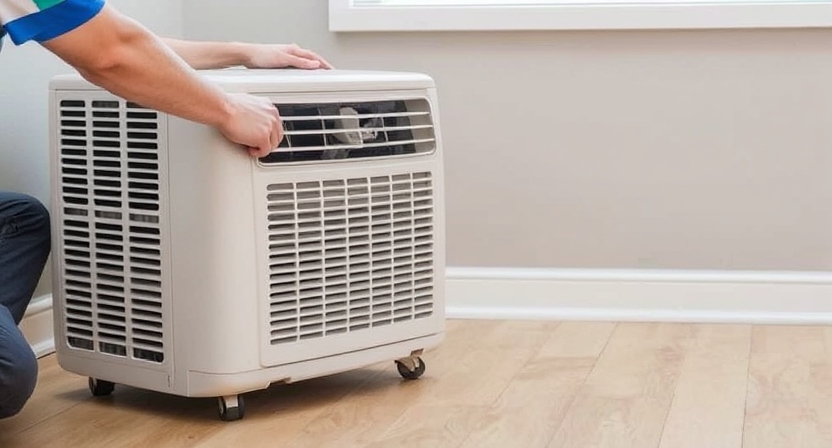Floor air conditioners, also known as portable air conditioners, are a convenient and efficient way to cool your home or workspace. Unlike central air conditioning systems, these units are compact, mobile, and relatively easy to set up. Designed to sit on the floor, they come with a venting kit to expel hot air outside through a window or wall vent. They are ideal for cooling specific rooms or areas, especially in homes without central air conditioning. However, like any appliance, floor air conditioners can encounter problems over time. Below, we discuss common issues and how to resolve them.
1. Insufficient Cooling
Problem: The air conditioner is running, but the room doesn’t feel much cooler.
Causes:
- Incorrect BTU (British Thermal Unit) rating for the room size.
- Dirty air filters or evaporator coils.
- Inadequate venting or obstructed airflow.
Solutions:
- Ensure the unit’s BTU rating matches the room size. Larger rooms require higher BTU ratings.
- Clean or replace the air filters regularly to maintain optimal airflow.
- Check the vent hose for kinks or blockages, ensuring it’s properly installed.
- Close doors and windows to prevent hot air from entering the room.
2. Excessive Noise
Problem: The unit produces loud or unusual noises during operation.
Causes:
- Loose components or parts.
- A clogged fan or compressor issues.
- Uneven placement on the floor.
Solutions:
- Inspect the unit for loose screws or parts and tighten them.
- Clean the fan blades and ensure no debris obstructs them.
- Place the unit on a level surface to minimize vibrations.
- If the noise persists, consult a professional to inspect the compressor.
3. Water Leakage or Drainage Issues
Problem: Water pools around the air conditioner or the unit stops working due to excessive water.
Causes:
- A full water tank or clogged drainage system.
- High humidity levels causing excessive condensation.
- Cracked or damaged drainage hose.
Solutions:
- Empty the water tank as per the manufacturer’s instructions.
- Regularly check and clean the drainage hose and ports.
- Use the dehumidifying mode if the unit has one to manage excess moisture.
- If the hose is damaged, replace it with a compatible one.
4. Unit Fails to Turn On
Problem: The air conditioner doesn’t start despite being plugged in.
Causes:
- Power supply issues.
- A tripped circuit breaker or blown fuse.
- Faulty internal components like the control board.
Solutions:
- Check the power outlet and try a different one if needed.
- Reset the circuit breaker or replace the fuse.
- Inspect the power cord for damage and replace it if necessary.
- If the problem persists, seek professional repair assistance.
5. Foul Odors
Problem: The unit emits unpleasant smells during operation.
Causes:
- Mold or mildew buildup inside the unit.
- Dirty filters or accumulated dust and debris.
Solutions:
- Clean the air filters and internal components regularly.
- Use a mild disinfectant to clean the evaporator coils and other internal parts.
- Ensure the unit is properly ventilated and dry when not in use to prevent mold growth.
6. Frequent Cycling On and Off
Problem: The air conditioner turns on and off repeatedly.
Causes:
- Thermostat issues or incorrect temperature settings.
- Overheating due to clogged filters or blocked vents.
- Electrical problems.
Solutions:
- Verify the thermostat settings and adjust them to a reasonable temperature.
- Clean the filters and ensure unobstructed airflow.
- Have an electrician check the wiring and connections if the issue persists.
Maintenance Tips to Avoid Common Issues
- Clean or replace air filters every two to four weeks during heavy usage.
- Inspect the venting hose for blockages or damage regularly.
- Store the unit properly during off-seasons to prevent dust accumulation.
- Follow the manufacturer’s maintenance guidelines for optimal performance.
When to Seek Professional Help
While many common issues can be resolved with regular maintenance and basic troubleshooting, some problems require professional attention. If your floor air conditioner continues to malfunction despite your efforts, consult a certified technician to diagnose and repair the unit.
By addressing these issues promptly and maintaining your floor air conditioner, you can enjoy efficient cooling and extend the lifespan of your appliance.

